When Josef Chromy’s assistant winemaker Yael Sandler first arrived in Tasmania, she thought she’d found Nirvana.
For years, Sandler had nurtured a passion for sparkling wine, and to her, that meant heading to the bottom of the world to learn how to create some of the best sparkling wines on the planet.
“The sparkling wines here are exceptionally good,” Sandler says, from the Josef Chromy estate just outside Launceston, where she has now relocated permanently from her homeland of Israel.
“I think it’s the unique location – true cool-climate winemaking – where traditional varieties thrive,” she says.
“You need a very specific combination of climate, soil and land for everything to come together to create something truly special.
“And that’s what we’ve got here in Tasmania.
“I’ve really fallen in love with it.”
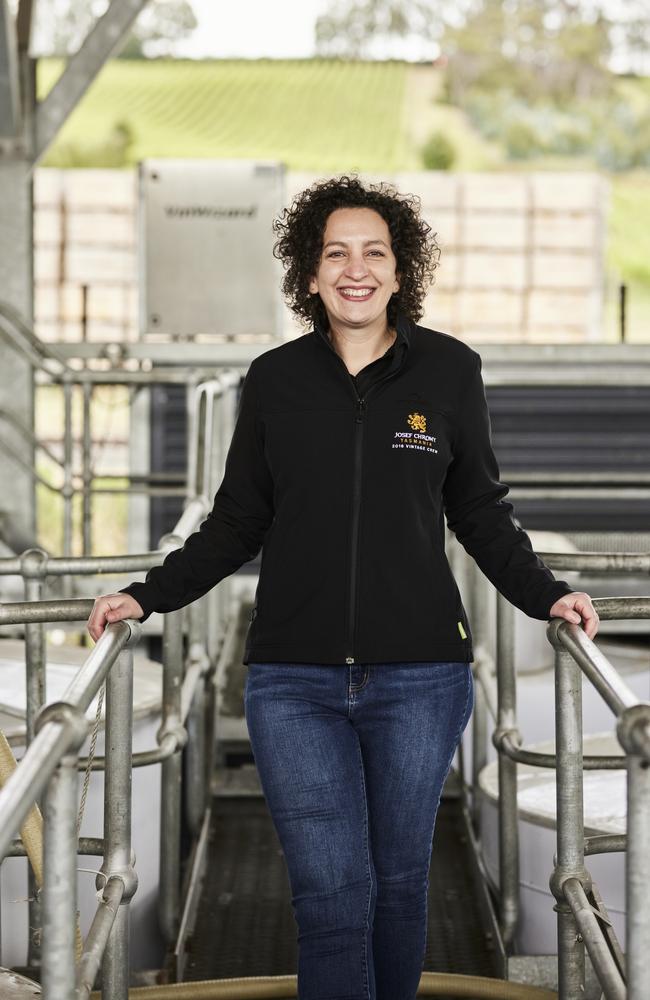
A UNIQUE TERROIR
Tasmania’s sparkling wine success story is relatively recent, but its rise can be traced to the island’s unique geographical and climatic conditions, which are ideal for producing world-class sparkling wine. Historically known for apples, Tasmania has, in recent decades, become a hub for cool-climate viticulture but the industry has really only been going for a few decades – a blink of the eye compared to the hundreds of years European vineyards had to perfect the art of winemaking.
Jen Doyle, head winemaker at Jansz, says the island is blessed with a marriage of conditions that particularly suit the grapes that make up sparkling wines.
“One of Tasmania’s strengths is that you can’t just plant hundreds of hectares of vineyards everywhere,” she explains. “The land is limited, and that also makes it very special, and very valuable.”
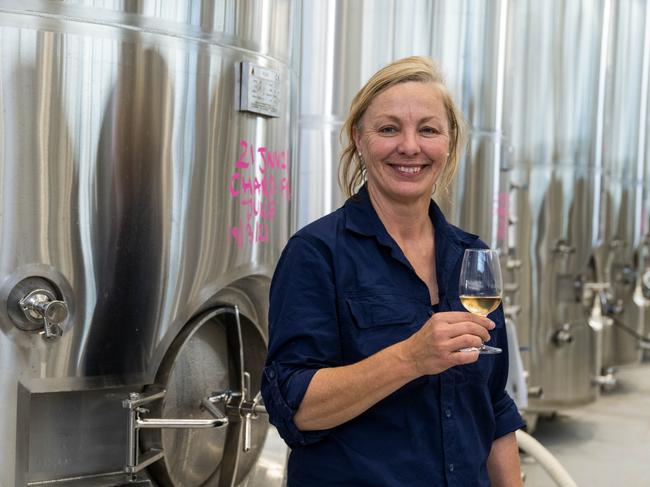
Tasmania’s latitude, between 41 and 43 degrees south, places it in a prime position for cool-climate grape growing. The maritime climate tempers extremes of heat and cold, which is essential for creating the balance of acidity and flavour that sparkling wine demands.
Tasmania’s soil is also ideal for sparkling, thanks to its volcanic and sandy-loam composition, which is well-draining and low in nutrients. This stresses the vines, helping produce high-acid, concentrated grapes essential for quality sparkling.
According to 2024 figures from Wine Tasmania, sparkling wine now accounts for nearly 40 per cent of all the wine produced on the island. This shows not only the suitability of the region for sparkling wine production, but also the growing global demand for Tasmania’s unique wines. Tasmanian grapes are also valuable, with the average price per tonne reaching $3674 – more than six times the national average of $613 per tonne.
“People are realising that the quality here is second to none,” Sandler says. “Tasmanian sparkling wine offers such incredible value – on the domestic market, you can find most bottles priced between $40 and $100. For the quality you’re getting, it’s an absolute bargain.”
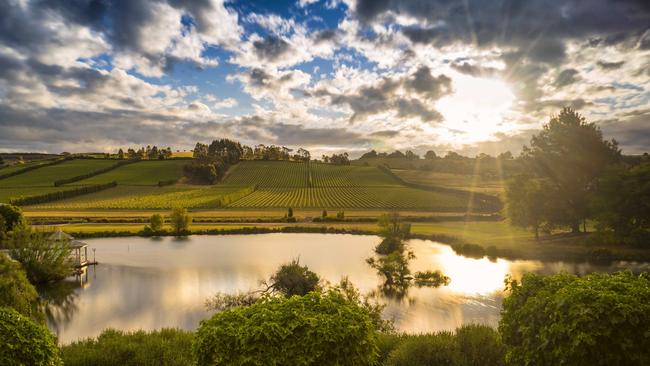
TRADITIONAL METHODS WITH A TASMANIAN TWIST
Much of Tasmania’s success in sparkling wine production comes from its commitment to traditional winemaking methods. Most of the island’s sparkling wines are made using the méthode champenoise, or traditional method, where secondary fermentation occurs in the bottle. This process, famously used in France’s Champagne region, adds complexity and depth to the wines through extended ageing on the lees (dead yeast cells), which imparts creamy, toasty flavours.
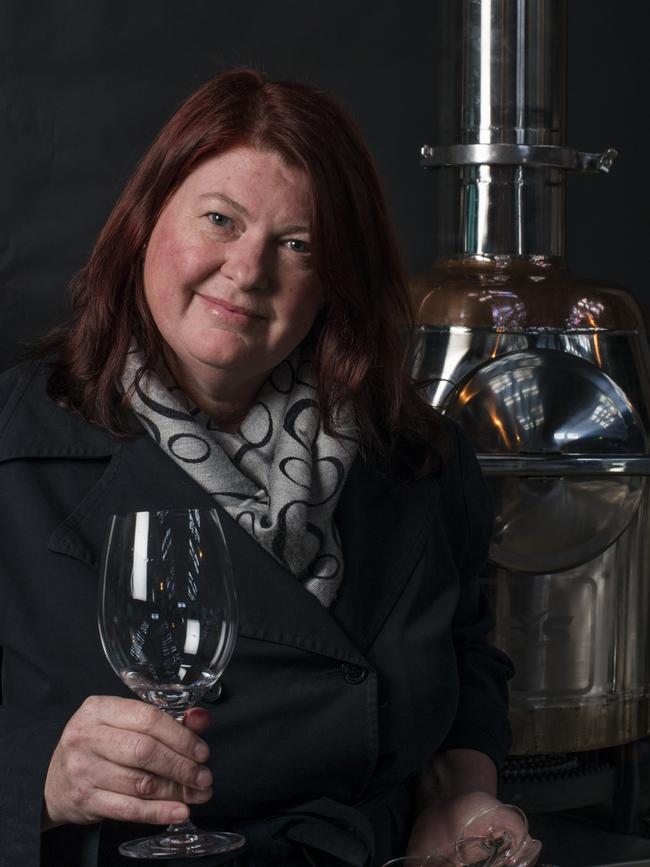
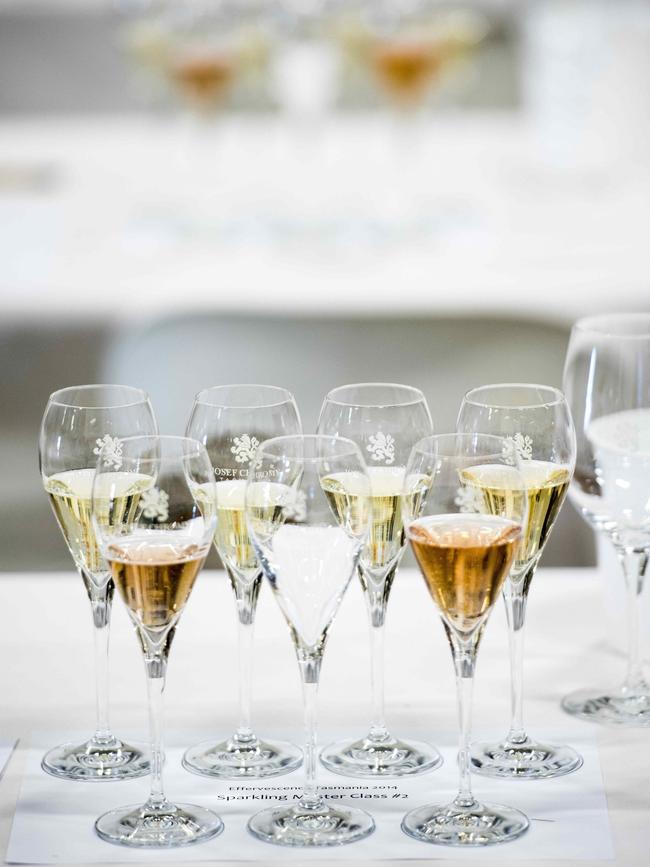
Natalie Fryar, known as Tasmania’s “Queen of Bubbles”, has spent decades mastering this process. Having worked at Jansz and now running her own label Bellebonne, Fryar is a key figure in Tasmania’s sparkling wine scene.
“Look, I’d love to say it’s some kind of black magic,” Fryar says, laughing. “But really, it’s my passion for the region and the traditional methods of sparkling wine. When you love what you do as much as I love what we’re doing here in Tasmania, that passion comes through in the wine.”
The combination of traditional methods with Tasmania’s cool climate and soil composition gives its sparkling wines a crisp, refreshing acidity. Flavours of citrus – particularly lemon, lime and grapefruit – dominate, often complemented by floral notes of jasmine and hints of stone fruits like white peach and nectarine.
THE SPARKLING WINE BOOM
Sparkling wine production in Tasmania has grown dramatically over the past decade and caught the eye of international experts. Cyril Brun, a fourth-generation French Champagne maker, once remarked: “Every time I taste sparkling wine from Tasmania, I feel like it could be the closest thing to Champagne.”
However, local growers are firm – Tasmanian sparkling wines stand on their own merits, with their brighter fruit profiles and emphasis on freshness setting them apart.
Sandler explains that it’s Tasmania itself – the state, its position on the globe and its Antarctic-influenced climate – that make Tasmanian sparkling wines so unique.
“You get this beautiful acidity, but there’s also this vibrancy and complexity from the slower ripening process,” she says.
“It’s a very special combination that you can really taste in the glass.”
This unique profile has won over wine lovers both domestically and internationally.
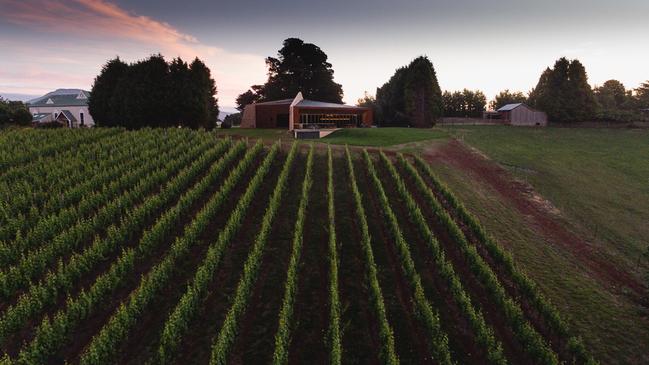
Tasmanian sparkling wines have earnt numerous accolades at prestigious competitions, including gold medals in international categories and blind tastings. They also consistently dominate the Best of Australian sparkling wine lists, making many wonder if it’s even a competition any more. Just last week, Tasmania’s Clover Hill was awarded five stars by Halliday Wine Guides, and King Charles sipped Tasmanian sparkling at a formal banquet when he visited Australia this month.
The growing recognition has also boosted Tasmania’s tourism industry. Wine enthusiasts from around the world are now flocking to the island to explore its vineyards and sample its wines. This month from November 8-10, pioneering sparkling winery Josef Chromy at Relbia, 15 minutes drive from Launceston, will host Effervescence, a festival dedicated entirely to Tasmanian sparkling wine. The event promises to attract both wine lovers and curious travellers eager to experience what makes Tasmanian sparkling so special.
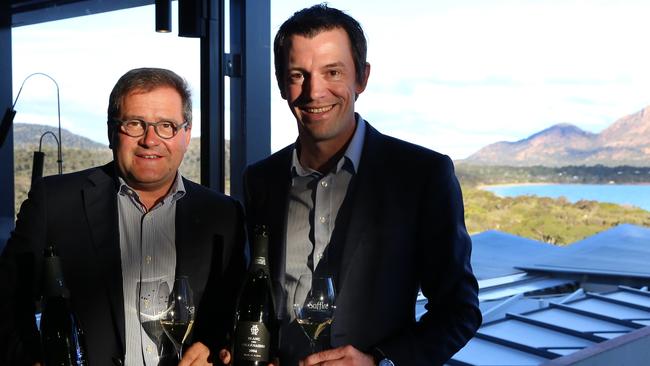
THE IMPORTANCE OF QUALITY
As demand continues to grow, maintaining the high quality of Tasmanian sparkling wine has become a central concern for local winemakers. Doyle is acutely aware of the pressure to meet increasing demand without compromising on quality.
“Other ‘boom’ regions around the world have seen a dip in quality once they’ve gone global,” she says. “We need to be absolutely sure that we maintain the quality of both the fruit we grow and the wine we make.”
She says Tasmania’s small size should protect it from large corporates bustling in to get a piece of the local market, as land availability – and the right land – is so limited.
Tyson Stelzer is a wine journalist and advocate for Tasmanian sparkling. He has previously said that Tasmanian sparkling is “affordable but made with the same quality criteria as Champagne”.
But he warns the pressure has seen some growers “scrambling to source more fruit,” and like Doyle says, that quality must not be compromised simply due to popularity.
Tasmania is already “the envy of the world” for its sparkling, and that must be preserved, not compromised, the critic says.
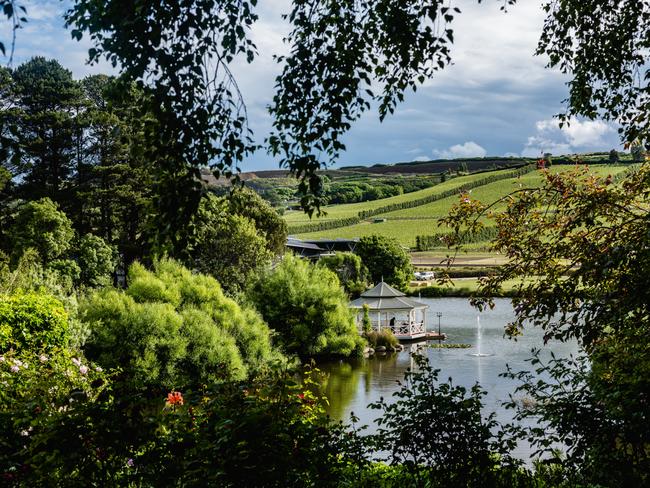
CLIMATE CHANGE AND THE FUTURE OF TASMANIAN SPARKLING WINE
While Tasmania’s sparkling wine industry is thriving, there are already concerns about the future, and how long the boom can last.
Climate change is already having an impact on wine regions worldwide, and Tasmania is no exception. The cool climate that makes it perfect for sparkling wine production could be under threat as global temperatures rise.
“We’re already seeing changes,” Doyle notes. “That’s why we’re starting to plant early-ripening varieties and exploring other options. But the reality is that in 100 years, it might not be sparkling wine we’re known for – it could be something else.”
Fryar agrees that climate change is a real concern for the industry. “We think about it a lot,” she says. “You have to be ready to adapt to whatever Mother Nature throws at you. For now, we’re in a good place, but we’re constantly keeping an eye on things. We’re never not thinking about it.”
Despite these challenges, leading winemakers like Fryar and Sandler remain optimistic about Tasmania’s future. “We’re fortunate to be working in such a pristine environment,” Fryar says.
“Tasmania is still relatively untouched compared to other wine regions, and that’s one of our biggest assets.”
Sandler adds, “There’s something magical about making wine here. The climate, the land – it all comes together in a way that’s hard to describe. I’m just happy to be part of it.”
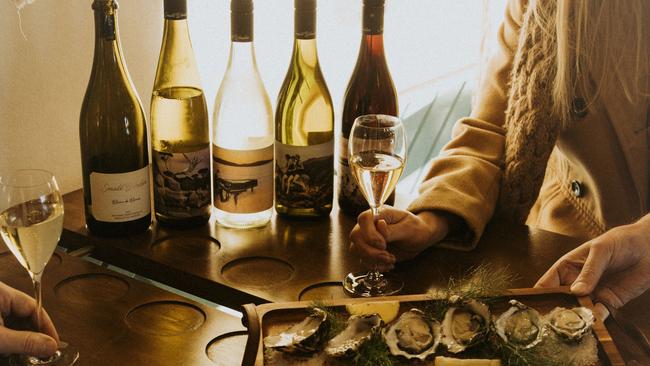
LOOKING AHEAD
Fryar now spends as much of her time mentoring young winemakers, but that’s the way she likes it.
She says many of the current and next generation of winemakers aren’t from Tasmania, like her, but around the globe, and have been drawn to the island by their passion for its sparkling sparkling.
And despite the boom and the fuss and the five-star reviews and well, the exceptional taste, Fryar is making her wine for Tasmanians first and foremost. Excellent wine for the people of the small island state she loves. “I’m known for saying there are two truly great sparkling wine regions in the world,” Fryar says with a smile. “One is an hour and a half north of Paris, and the other? Well, I’m standing in it right now.”
“We grow grapes here that make wines the world envies,” she continues.
“Some would say we don’t price them high enough for what they’re worth, so for now, they remain one of the greatest bargains in the world.”•
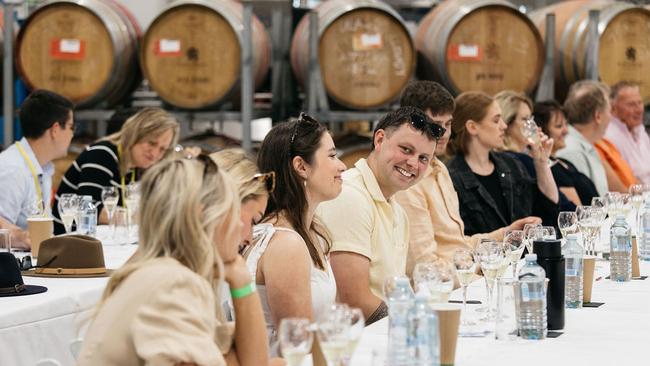
This year’s three-day festival – being held at the pioneering sparkling winery Josef Chromy Wines in Relbia, which is about 15 minutes drive south of Launceston, from November 8-10 – includes the Effervescence Gala Dinner, Effervescence Grand Tasting, sparkling wine masterclasses featuring both local and international producers, and the Bubbles & Beats after-party, in addition to myriad support events located across Launceston and surrounding regions.
For more information and/or to book tickets, go to: www.effervescencetasmania.com

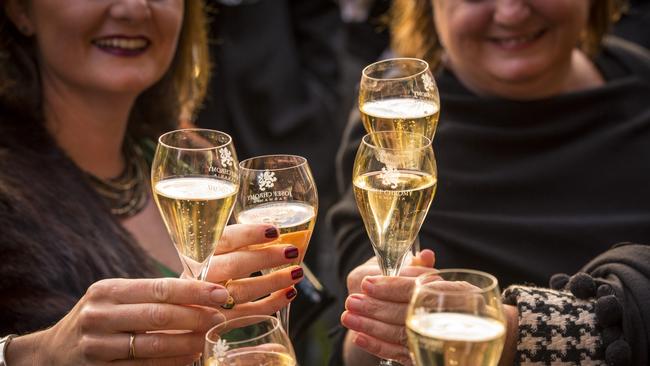
Add your comment to this story
To join the conversation, please log in. Don't have an account? Register
Join the conversation, you are commenting as Logout
North Hobart’s laid-back star shines again
Freshly polished but still charmingly relaxed, this neighbourhood restaurant pairs smart, share-friendly food with cosy vibes and service that hits just the right note, writes Alix Davis
Romance boom: Tassie author pens 100th book
Tasmania’s Ris Wilkinson became an author at 44 with romance juggernaut Mills & Boon. At 66, she’s penning her 100th book as Melanie Milburne – as writers converge on Hobart for a national event.